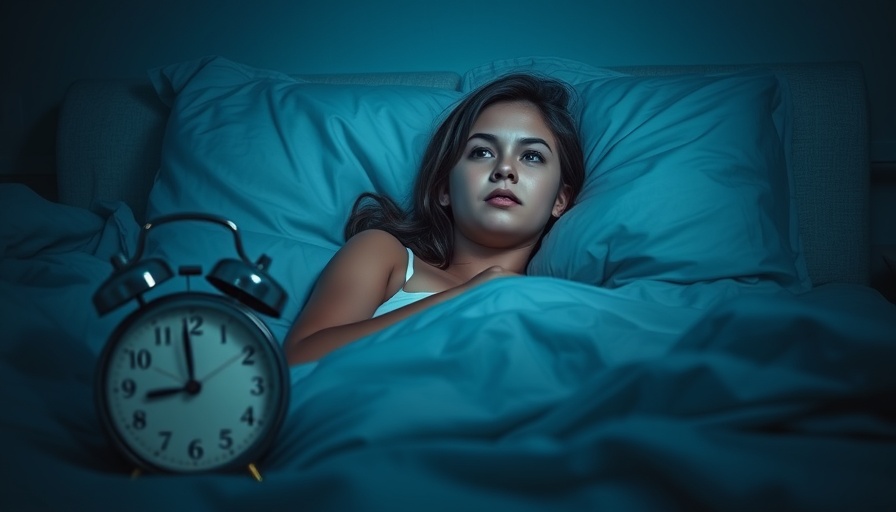
The Hidden Consequences of Social Media Use on Sleep
Recent research reveals a startling statistic: engaging in social media activities can increase the chances of developing insomnia by a whopping 59%. For parents, this information underscores the importance of monitoring their children's online activities as they navigate the digital age.
Understanding the Insomnia Connection
Insomnia is no longer a problem faced only by adults. Children and teenagers, often glued to their screens late into the night, also suffer from disturbed sleep patterns. The study suggests that the more time spent engaging with social media—be it scrolling through feeds or participating in online discussions—the greater the likelihood of experiencing sleep disturbances.
Why Are Teens So Affected?
Toddlers and teens are particularly vulnerable due to their developmental stages. As they strive to build social connections, the desire to stay updated with their peers often leads them to sacrifice sleep for more 'screen time.' This cycle can create a negative feedback loop, impacting mood and academic performance as fatigue sets in.
Real-Life Stories: The Sleep Struggles of Parents and Children
Consider Sarah, a mother of two who noticed her children struggling to concentrate at school. After discovering that they were spending upwards of four hours a day on social media, she decided to implement a family-wide screen time limit. Since then, her kids report feeling more alert and focused. Sarah's story is a beacon for other parents seeking solutions.
Simple Steps to Combat Social Media-Induced Insomnia
Here are practical steps parents can take to help their children enjoy better sleep:
- Establish a Digital Curfew: Encourage children to disconnect from electronics at least an hour before bedtime.
- Promote Alternative Activities: Engage children in device-free activities, such as reading together or family board games.
- Lead by Example: Parents should model healthy screen habits to reinforce their importance.
- Communicate Openly: Discuss the potential drawbacks of too much screen time, helping children understand its impact on their well-being.
The Future of Screen Time and Sleep Quality
As we continue to navigate a tech-driven world, the correlation between sleep and social media use will likely remain a significant point of discussion. Experts predict that as awareness grows, so will the strategies to mitigate negative effects, ensuring a healthier balance between digital engagement and restful sleep.
Final Thoughts on Balancing Technology and Sleep
For parents, the key takeaway is clear: managing social media usage is vital for fostering better sleep habits in your children. The benefits of proactive strategies can lead to significant improvements in sleep quality, educational performance, and overall mental health.
Encourage your family to find a balance between digital activities and healthy sleep routines. After all, ensuring proper rest is one of the best gifts you can offer your children for their growth and development.
 Add Row
Add Row  Add
Add 




 Add Row
Add Row  Add
Add 

Write A Comment